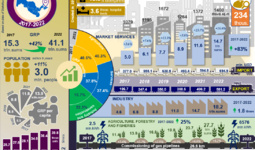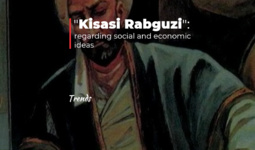This year’s laureates in the economic sciences – Daron Acemoglu, Simon Johnson and James Robinson – have demonstrated the importance of societal institutions for a country’s prosperity. Societies with a poor rule of law and institutions that exploit the population do not generate growth or change for the better. The laureates’ research helps us understand why.
When Europeans colonised large parts of the globe, the institutions in those societies changed. This was sometimes dramatic, but did not occur in the same way everywhere. In some places the aim was to exploit the indigenous population and extract resources for the colonisers’ benefit. In others, the colonisers formed inclusive political and economic systems for the long-term benefit of European migrants.
The laureates have shown that one explanation for differences in countries’ prosperity is the societal institutions that were introduced during colonisation. Inclusive institutions were often introduced in countries that were poor when they were colonised, over time resulting in a generally prosperous population. This is an important reason for why former colonies that were once rich are now poor, and vice versa.
Some countries become trapped in a situation with extractive institutions and low economic growth. The introduction of inclusive institutions would create long-term benefits for everyone, but extractive institutions provide short-term gains for the people in power. As long as the political system guarantees they will remain in control, no one will trust their promises of future economic reforms. According to the laureates, this is why no improvement occurs.
However, this inability to make credible promises of positive change can also explain why democratisation sometimes occurs. When there is a threat of revolution, the people in power face a dilemma. They would prefer to remain in power and try to placate the masses by promising economic reforms, but the population are unlikely to believe that they will not return to the old system as soon as the situation settles down. In the end, the only option may be to transfer power and establish democracy.
Although the prize was awarded jointly to them, it is possible to highlight some specific contributions from each of the laureates:
Daron Acemoglu is known for his work on political economy, in particular, research on the relationship between political institutions and economic growth. He has made significant contributions to the development of the theory of "inclusive institutions" that protect property rights, ensure equal opportunities and stimulate innovation.
Simon Johnson specializes in macroeconomics and international economics. He contributed to the study of financial crises, the role of international organizations and the influence of geographical factors on economic development.
James Robinson focuses on the causes of poverty and inequality, focusing on the role of historical and political factors. He is known for his research on the impact of colonialism on long-term economic development.
Together, these three economists have developed a theoretical framework for understanding why some countries are rich and others are poor, highlighting the key role of institutions in this process. Their work has had a significant impact on economics and politics, contributing to a deeper understanding of development problems and finding ways to solve them.
“Reducing the vast differences in income between countries is one of our time’s greatest challenges. The laureates have demonstrated the importance of societal institutions for achieving this,” says Jakob Svensson, Chair of the Committee for the Prize in Economic Sciences.





















leave a comment